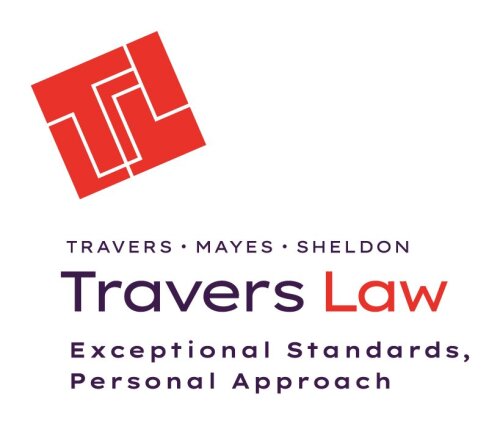Best Child Custody Lawyers in Waterloo
Share your needs with us, get contacted by law firms.
Free. Takes 2 min.
Free Guide to Hiring a Family Lawyer
List of the best lawyers in Waterloo, Canada
About Child Custody Law in Waterloo, Canada
Child custody law in Waterloo, Ontario, is governed primarily by provincial and federal statutes, namely the Children’s Law Reform Act (Ontario) and the Divorce Act (Canada). These laws focus on the well-being of the child and strive to create arrangements that serve the "best interests of the child." This includes determining where a child lives, each parent’s responsibilities, and how important decisions about the child are made. Custody arrangements can be sole, joint, or shared, but all are rooted in the principle of supporting and protecting the child's physical and emotional welfare.
Why You May Need a Lawyer
Legal advice in child custody matters is important for several reasons. Many parents encounter complex and emotionally charged situations such as marital separation, divorce, or disputes over upbringing and residence. You may need a lawyer if:
- You and your co-parent disagree on custody or parenting arrangements.
- You are concerned about your child’s safety or well-being with the other parent.
- You wish to modify an existing custody order or agreement.
- There are allegations of abuse, neglect, or other serious concerns.
- You or the other parent plan to relocate with the child.
- You are involved in international custody matters.
- You want to ensure your rights and your child’s best interests are represented fairly in legal proceedings.
Seeking legal guidance helps protect your interests and ensures that any agreements or orders comply with Ontario and Canadian law.
Local Laws Overview
Key aspects of child custody law relevant to Waterloo, Ontario, include:
- Best Interests of the Child: Courts prioritize the child’s needs above all else. Factors considered include the child’s relationship with each parent, the child’s preferences (when appropriate), and the ability of each parent to care for the child.
- Types of Custody: Arrangements may be sole custody (one parent has decision-making authority), joint custody (decision-making shared), or shared custody (child spends at least 40% of time with each parent).
- Parenting Time: Refers to the time a child spends with each parent, irrespective of custody status. Parenting schedules can be flexible or highly structured.
- Enforcement and Modification: Existing custody orders can be enforced through the courts. They may also be changed if there has been a significant change in circumstances affecting the child.
- Parental Relocation: A parent wishing to move with the child must either have the other parent’s consent or seek court approval.
- Rights of Grandparents and Third Parties: In some cases, non-parents may apply for access or custody if it serves the child’s best interests.
Frequently Asked Questions
What is the difference between custody and access?
Custody refers to the legal right to make important decisions about the child's upbringing, such as education and health care. Access (often called “parenting time”) refers to the time a child spends with the non-custodial parent.
How do courts determine who gets custody?
Court decisions are based on the best interests of the child, considering factors like the child’s needs, each parent’s ability to meet those needs, and the relationship between the child and each parent.
Can children choose which parent to live with?
The court may give weight to the views and preferences of older or mature children, but the final decision is always based on the child's best interests, not just their preferences.
How long does a custody case typically take in Waterloo?
Timelines can vary significantly depending on the complexity of the case and whether the parents can agree. Cases resolved through negotiation or mediation are usually faster than litigated disputes.
Is mediation required in Waterloo child custody cases?
Mediation is not mandatory, but it is encouraged. Courts often prefer parents attempt to resolve issues through alternative dispute resolution before proceeding to trial.
Can custody arrangements be changed after they are established?
Yes, custody and access orders can be changed if there is a significant change in circumstances affecting the child’s welfare, such as relocation, changes in health, or shifts in parenting capacity.
What if one parent denies access or does not follow the custody order?
The denied parent can apply to the court to enforce the order. Courts take breaches of orders seriously and can issue remedies, including make-up access.
Are grandparents entitled to custody or access?
Grandparents can apply for custody or access if it is in the best interests of the child, but their rights are not automatic and are considered on a case-by-case basis.
Does the mother always have a better chance of getting custody?
No. Ontario law is gender-neutral, and custody decisions are based on the child's best interests, not the parents' gender.
What if there are safety concerns with the other parent?
Safety concerns should be documented and addressed immediately. The court can issue restraining orders or require supervised visits if a child's safety is at risk.
Additional Resources
- Family Law Information Centre (FLIC), Waterloo: Offers free information and referrals related to family law.
- Legal Aid Ontario: Provides legal assistance for eligible individuals in family law cases, including custody.
- Ontario Ministry of the Attorney General: Offers publications and guidance on child custody and access.
- Region of Waterloo Family and Children’s Services: Offers support services for families and children.
- Law Society of Ontario: Lawyer referral service to connect individuals with local family law lawyers.
- Community Legal Clinics: Provide advice and support, particularly for low-income individuals.
Next Steps
If you need legal assistance related to child custody in Waterloo:
- Gather all relevant documentation-this may include court orders, parenting agreements, and records related to the child’s care or concerns.
- Consider speaking with a legal professional for an assessment of your situation.
- Contact a local lawyer who specializes in family law, or use community legal resources if you require financial assistance.
- If safe, discuss and attempt to negotiate custody matters with the other parent.
- If negotiation is not possible or appropriate, consider using mediation or alternative dispute resolution mechanisms.
- If your child's immediate safety is at risk, seek help from child protection services or law enforcement.
- Prepare for court proceedings by following legal advice, organizing your information, and focusing on your child’s needs and best interests.
Remember that every case is unique, and professional legal guidance is the best way to ensure your rights and your child’s well-being are protected.
Lawzana helps you find the best lawyers and law firms in Waterloo through a curated and pre-screened list of qualified legal professionals. Our platform offers rankings and detailed profiles of attorneys and law firms, allowing you to compare based on practice areas, including Child Custody, experience, and client feedback.
Each profile includes a description of the firm's areas of practice, client reviews, team members and partners, year of establishment, spoken languages, office locations, contact information, social media presence, and any published articles or resources. Most firms on our platform speak English and are experienced in both local and international legal matters.
Get a quote from top-rated law firms in Waterloo, Canada — quickly, securely, and without unnecessary hassle.
Disclaimer:
The information provided on this page is for general informational purposes only and does not constitute legal advice. While we strive to ensure the accuracy and relevance of the content, legal information may change over time, and interpretations of the law can vary. You should always consult with a qualified legal professional for advice specific to your situation.
We disclaim all liability for actions taken or not taken based on the content of this page. If you believe any information is incorrect or outdated, please contact us, and we will review and update it where appropriate.










